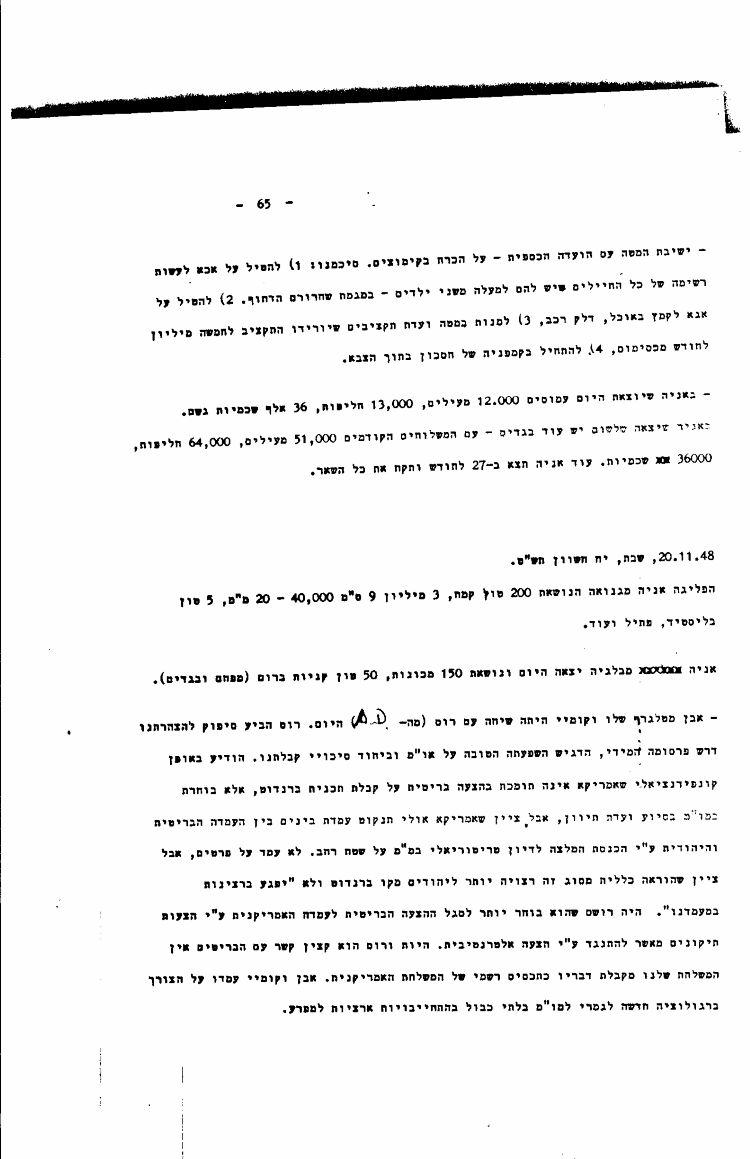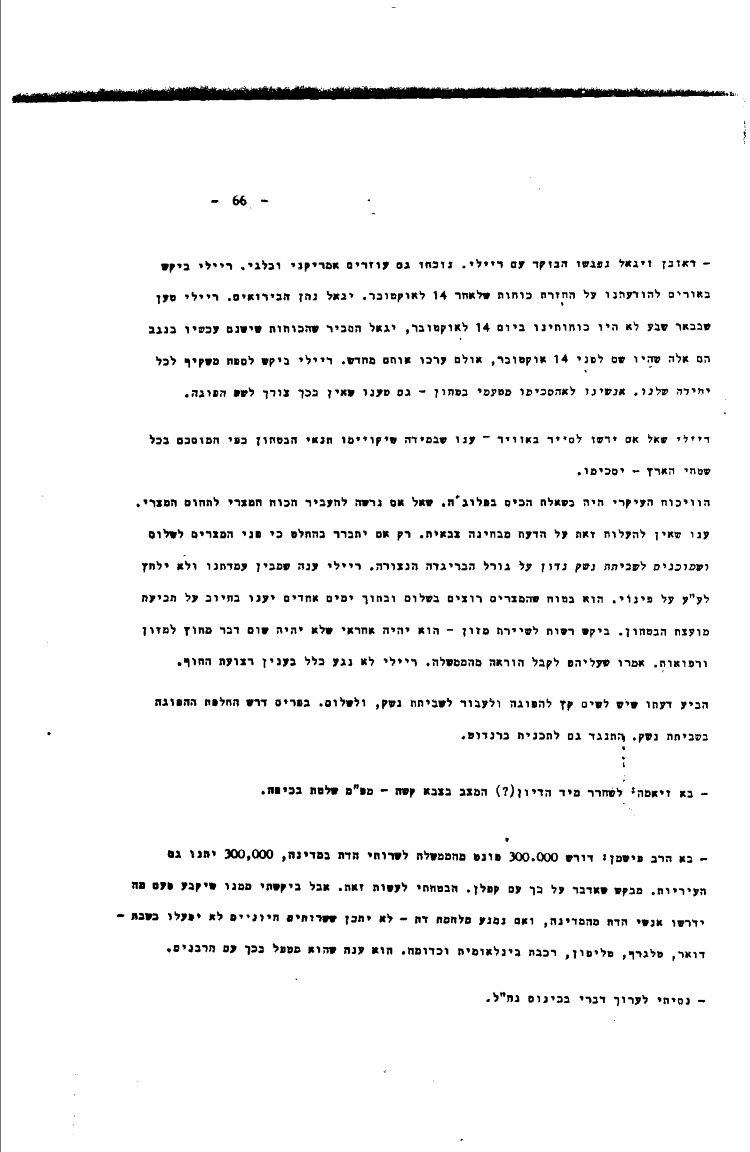1
of
Places:
Urim
United States
Belgium
Genoa
Paris
People:
The use of the photograph is subject to the Copyright Law, 2007
20.11.1948
225137
Saturday, November 20, 1948 A ship set sail from Genoa carrying 200 tons of flour, 3 million 9 mm [bullets], 40,000 – 20 mm, 5 tons ballistite, fuse cord, etc. A ship departed Belgium today carrying 150 vehicles, 50 tons of purchases – bromine ([for the] chemicals factories), and clothes. – [Abba] Eban telegraphs that he and [Michael] Comay had a conversation today with [John] Ross (of the SD [US State Department]). Ross voiced satisfaction with our statement, asked that it be publicized immediately, [and] emphasized its positive influence on the UN, especially the chances of our being admitted [into the UN]. He stated confidentially that America does not support the British proposal on acceptance of the Bernadotte plan, but instead opts for negotiations assisted by a mediation committee, but he noted that America might take a middle-ground stance between the British and Jewish positions, by introducing a recommendation for discussions on territorial matters as part of negotiations on land broadly. He didn’t go into detail, but did note that a general instruction of this sort is better for the Jews than Bernadotte’s approach and “won’t undermine the seriousness of our position.” The impression was that he was more inclined to adapt the British proposal to the American position through proposed amendments than to oppose it by way of an alternative proposal. Because Ross is a liaison officer with the British, our delegation does not take his words as an official tactic of the American delegation. Eban and Comay insisted on the need for an entirely new resolution for negotiations not bound by prior territorial commitments. – Reuven [Shiloah] and Yigael [Yadin] met this morning with [General] Riley. Also present were an American assistant and a Belgian assistant. Riley asked for clarifications of our statement on the return of forces who [had entered the Negev] after October 14. Yigael gave him the clarifications. Riley claimed that our forces had not been in Beersheva on the 14th of the month. Yigael explained that the forces that are in the Negev now are the ones that were there before October 14, but they’ve been reorganized. Riley asked to have an observer attached to each of our units. Our men did not agree to this, for reasons of security. They also argued that this is not necessary for a truce. Riley asked if they’d allow aerial reconnaissance – and they replied that as long as the agreed-upon security conditions are maintained throughout the country, they’d agree. The main disagreement related to the “pocket” in Faluja. [Riley] asked whether we’d allow the Egyptian force to be transferred to Egyptian territory. They replied that this is unacceptable militarily. Only if it becomes absolutely clear that the Egyptians have peaceful intentions and are willing to accept an armistice, will we discuss the fate of the besieged brigade. Riley replied that he understands our position and won’t insist on evacuation for now. He’s certain that the Egyptians want peace, and within a few days will reply affirmatively to the Security Council demand. He requested permission for a food convoy – he’ll be responsible for ensuring that there’s nothing other than food and medicine. They said they’d have to receive instructions from the government. Riley didn’t touch on the matter of the coastal strip at all. He voiced his opinion that the truce should be brought to an end and [we] should move towards an armistice, and peace. In Paris he called for the truce to be replaced with an armistice. He also objected to the Bernadotte plan. – Ziama [Aran] came: [Ze’ev] Herring should be immediately released. The situation in the army is bad – Mapam controls the kippah [elections propaganda]. – Rabbi Fishman [Y. L. Maimon] came: He’s demanding 300,000 pounds from the government for the state’s religious services. The municipalities will also provide 300,000. He’s asking that I discuss this with [Eliezer] Kaplan. I promised to do that. But I asked him to determine at some point what the religious leaders want from the state, and if we can avoid a war over religion. It’s inconceivable that vital services wouldn’t operate on Saturday – mail, telegraph, telephone, international railway, and the like. He replied that he’s addressing this with the rabbis. – I tried to edit my remarks from the NAHAL [No’ar Halutzi Lohem – Pioneer Fighting Youth, a combined military service and agricultural settlement program] meeting.










